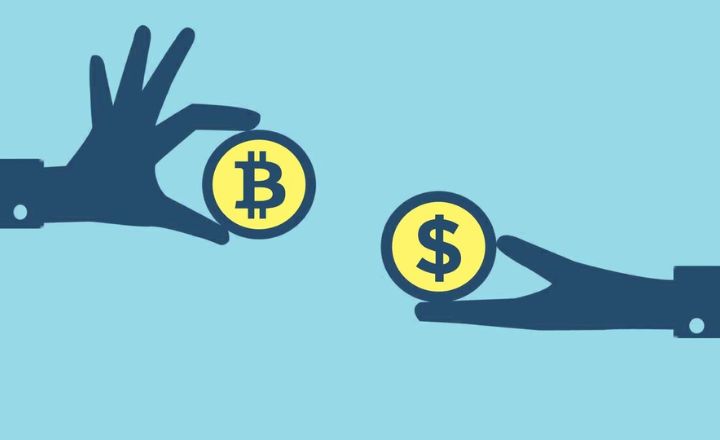In the ever-expanding world of cryptocurrencies, Bitcoin continues to reign supreme as the pioneer and most valuable digital asset. As interest in Bitcoin grows, so does the demand for reliable and efficient Bitcoin exchanges where individuals can buy, sell, and trade this cryptocurrency. Choosing the best Bitcoin exchange involves evaluating several factors, including security measures, fees, supported cryptocurrencies, user interface, customer support, and regulatory compliance. This comprehensive guide aims to help you navigate the complexities of selecting the right Bitcoin exchange to suit your trading needs and preferences.
Understanding Bitcoin Exchanges
Bitcoin exchanges are online platforms that facilitate the buying, selling, and trading of Bitcoin and other cryptocurrencies. They serve as intermediaries that match buyers with sellers and provide liquidity to the market. Exchanges vary in terms of features, trading options, and regulatory compliance, making it essential to research and compare different platforms before making a decision.
Factors to Consider When Choosing a Bitcoin Exchange
Security Features:
Security is paramount when selecting a Bitcoin exchange. Look for platforms that implement robust security measures such as encryption, two-factor authentication (2FA), cold storage for funds, and regular security audits to protect against hacking and unauthorized access.
Trading Fees:
Evaluate the fee structure of each exchange, including transaction fees, deposit fees, withdrawal fees, and trading fees. Fees can vary significantly between platforms and may impact your trading profitability, especially for frequent traders.
Supported Cryptocurrencies:
While Bitcoin is the primary focus, consider whether the exchange supports other cryptocurrencies if you plan to diversify your portfolio. Some exchanges offer a wide range of altcoins, while others have a more limited selection.
User Interface and Experience:
A user-friendly interface with intuitive navigation can significantly enhance your trading experience, especially for beginners. Look for exchanges that provide clear market data, charting tools, and easy access to trading options.
Liquidity:
High liquidity ensures that you can execute trades quickly and at competitive prices. Exchanges with higher trading volumes generally offer better liquidity, minimizing the risk of price slippage.
Customer Support:
Reliable customer support is essential for resolving issues promptly and efficiently. Check if the exchange offers multiple support channels (e.g., email, live chat, phone) and inquire about response times.
Regulatory Compliance:
Ensure that the exchange complies with regulatory requirements in your jurisdiction. Regulatory compliance helps protect your funds and ensures legal transparency and accountability.
Types of Bitcoin Exchanges
Centralized Exchanges:
Centralized exchanges (CEX) operate as intermediaries and maintain control over users’ funds. They offer a user-friendly interface, high liquidity, and a wide range of trading pairs. Examples include Coinbase, Binance, Kraken, and Bitfinex.
Decentralized Exchanges:
Decentralized exchanges (DEX) operate without a central authority and allow users to trade directly with each other using smart contracts. They prioritize privacy and security but may have lower liquidity and a steeper learning curve. Examples include Uniswap, PancakeSwap, and SushiSwap.
Peer-to-Peer Exchanges:
Peer-to-peer (P2P) exchanges facilitate direct transactions between buyers and sellers without the involvement of an intermediary. They offer more anonymity and may support various payment methods. Examples include LocalBitcoins and Paxful.
Risks and Considerations
Volatility:
Bitcoin’s price volatility can lead to rapid and significant price fluctuations. Use risk management strategies and be prepared for potential losses.
Security Risks:
Despite security measures, exchanges are vulnerable to hacking attacks. Secure your account with strong passwords, enable 2FA, and consider using a hardware wallet for long-term storage.
Regulatory Risks:
Regulatory changes and legal uncertainties can impact the operation of Bitcoin exchanges. Stay informed about regulatory developments in your region.
Conclusion
Choosing the best Bitcoin exchange requires careful consideration of security features, fees, supported cryptocurrencies, user experience, liquidity, customer support, and regulatory compliance. Whether you prioritize ease of use, advanced trading options, or regulatory adherence, finding the right exchange can significantly enhance your trading experience and help you navigate the evolving landscape of cryptocurrencies. By conducting thorough research and evaluating your priorities, you can make an informed decision and embark on your Bitcoin trading journey with confidence.

